Having a pet bird can bring joy, companionship, and vibrant energy into your life. Birds are fascinating creatures known for their beauty, intelligence, and melodic voices. In this article, we will delve into the world of popular pet birds, exploring their unique characteristics, the essential aspects of their care, and breeding.
Popular Pet Birds: What Makes Birds Popular Pets?
Birds have captured the hearts of pet enthusiasts for numerous reasons. Their captivating beauty, ability to mimic sounds and words, and their engaging personalities make them incredibly popular choices as pets.
Birds offer a unique form of companionship, bringing vibrancy and liveliness into any household. Additionally, they require less space compared to larger pets like dogs or cats, making them suitable for various living arrangements.
Understanding the Different Bird Species
There are several popular pet bird species that make excellent pets. Each with its own distinctive characteristics and care requirements. Let’s explore some of these species:
Parakeets

Parakeets, also known as budgerigars, are small and colorful birds originating from Australia. They are renowned for their playful nature, intelligence, and ability to mimic sounds and words. Parakeets are relatively easy to care for, making them an ideal choice for first-time bird owners.
Cockatiels
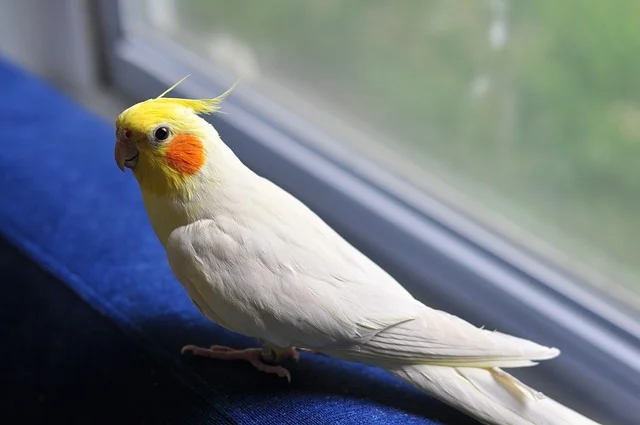
Cockatiels are another beloved bird species known for their gentle demeanor and charming crests. Native to Australia, these birds are highly sociable and enjoy interacting with their human companions. Cockatiels are renowned for their whistling and chirping abilities, which add a delightful musical touch to any home.
Lovebirds
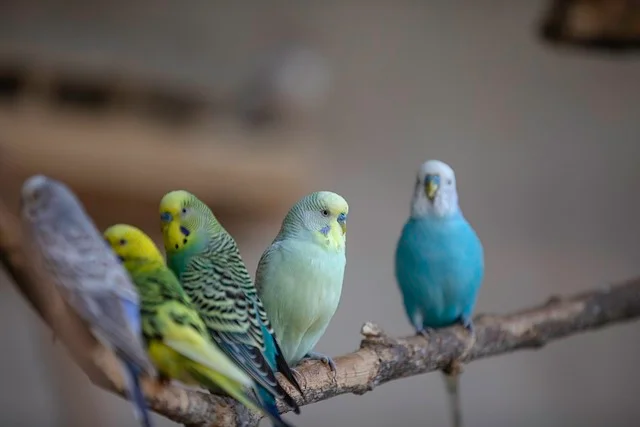
Lovebirds are small, affectionate birds known for their strong pair bonding and loving nature. These birds thrive on social interaction and form deep bonds with their human caregivers. Lovebirds come in various vibrant colors and require mental stimulation to keep them happy and healthy.
African Grey Parrots
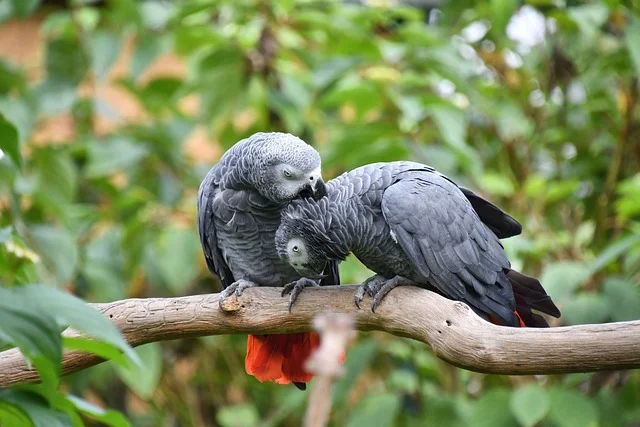
African Grey Parrots are renowned for their exceptional intelligence and ability to mimic human speech with astonishing accuracy. These birds are highly social and require mental stimulation to prevent boredom. African Grey Parrots are known for their longevity, often living for several decades.
Macaws

Macaws are majestic, large-sized birds with vibrant plumage and impressive wingspans. They are known for their intelligence, playful nature, and their ability to mimic human speech. Macaws require ample space, mental stimulation, and a balanced diet to thrive in captivity.
Canaries

Canaries are small, melodious songbirds that are famous for their beautiful vocalizations. Canary birds are relatively low-maintenance and do well in smaller living spaces. Canaries are prized for their beautiful songs and are a joy to listen to.
Finches
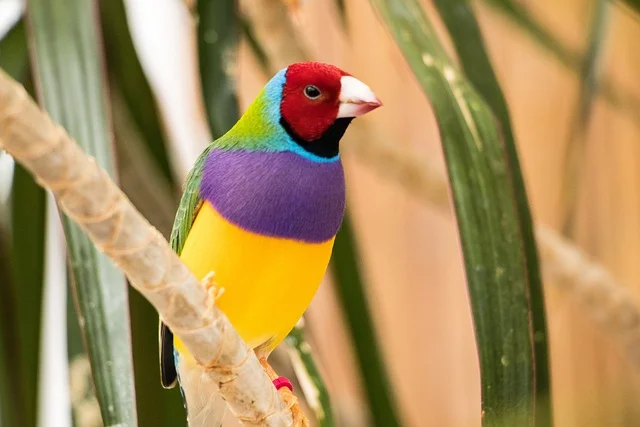
Finches are small, social birds known for their melodious chirping and vibrant colors. They are best kept in pairs or groups and thrive in spacious aviaries. Finches are low-maintenance pets, making them an excellent choice for bird enthusiasts of all ages.
Characteristics of Popular Pet-Birds
Understanding the characteristics of pet birds is important in providing them with proper care and nurturing their overall well-being. Let’s explore some key aspects of these delightful creatures:
- Physical Attributes: Pet birds exhibit a wide range of physical attributes, including colorful plumage, unique beak shapes, and distinctive crests or tails. Each species has its own set of physical characteristics that make them visually appealing and individualistic.
- Social Behavior: Birds are highly social animals, and popular pet species thrive on interaction and companionship. They form strong bonds with their human caregivers and enjoy spending time together. Socialization and mental stimulation are essential for their emotional well-being.
- Lifespan: The lifespan of pet birds varies across species. Smaller birds like parakeets and cockatiels typically live for 10 to 20 years, while larger species like African Grey Parrots and Macaws can live well into their 60s or even longer. Committing to a pet bird means understanding and preparing for their long-term care needs.
- Vocalization: One of the most enchanting aspects of pet birds is their ability to vocalize. From chirping and whistling to mimicking sounds and even speaking words, their melodic voices bring a sense of joy and liveliness to any environment.
- Intelligence: Popular pet-birds are remarkably intelligent creatures. They possess problem-solving skills, can learn tricks and commands, and have an impressive capacity for memory and learning. Stimulating their minds through toys, puzzles, and interaction is vital to prevent boredom and encourage mental well-being.
Essential Care for Pet Birds
Proper care is important for the well-being of pet birds. By addressing their fundamental needs, you can ensure they lead healthy and fulfilling lives. Here are some essential aspects of bird care:
- Housing and Cage Requirements: Provide a spacious and secure cage that allows your bird to move around comfortably. The cage should have appropriate bar spacing to prevent escape or injury. Include perches, toys, and interactive elements to keep your bird mentally engaged.
- Proper Nutrition: Offer a balanced diet consisting of high-quality bird pellets, fresh fruits, vegetables, and occasional treats. Different bird species have specific dietary requirements, so consult a veterinarian or avian specialist to ensure you are providing the right nutrition.
- Hydration and Cleanliness: Fresh and clean water should always be available to your pet bird. Change the water daily to prevent contamination. Additionally, maintain a clean living environment by regularly cleaning the cage, perches, and toys.
- Exercise and Enrichment: Allow your pet bird to exercise outside of the cage daily. Provide opportunities for flight, exploration, and playtime. Engage in interactive activities and provide toys that encourage physical and mental stimulation.
- Veterinary Care: Schedule regular check-ups with an avian veterinarian to monitor your bird’s health. Vaccinations, parasite prevention, and routine examinations are essential to catch any potential health issues early on.
- Handling and Socialization: Handle your bird gently and with care, gradually building trust and forming a bond. Regular socialization is crucial for their emotional well-being. Spend quality time interacting with your pet bird, talking to them, and providing positive reinforcement.
Breeding Pet Birds
Breeding pet birds can be a rewarding experience for experienced bird owners. However, it requires careful consideration and preparation. Here are some key points to understand:
- Understanding Breeding Behavior: Learn about the specific breeding behaviors and reproductive cycles of your bird species. Understanding their natural instincts and courtship rituals will help you create a suitable environment for breeding.
- Preparing for Breeding: Ensure that your birds are in optimal health and condition before attempting to breed them. Provide a separate breeding enclosure or nest box, complete with suitable nesting materials and appropriate temperature and humidity levels.
- Nesting and Egg Incubation: Monitor your bird’s nesting activities and provide the necessary support while maintaining a hands-off approach. Eggs will require specific temperature and humidity levels for successful incubation.
- Chick Care and Hand-Feeding: Once the eggs hatch, the care of the chicks becomes crucial. Hand-feeding may be required, and it is essential to follow proper techniques and consult with avian experts if necessary.
- Potential Challenges and Considerations: Breeding pet birds can present challenges, such as finding suitable mates, preventing inbreeding, and ensuring the well-being of both parents and chicks. It is important to be prepared for these challenges and seek guidance from avian professionals if needed.
Conclusion
Birds make wonderful and popular pets, bringing beauty, charm, and companionship into our lives. By understanding the unique characteristics of different bird species, providing essential care, and considering the complexities of breeding, we can create fulfilling relationships with these intelligent creatures. Remember, being a responsible bird owner involves meeting their physical, social, and emotional needs throughout their lives.
Frequently Asked Questions (FAQs)
Can I teach my pet bird to talk?
Yes, many bird species, such as African Grey Parrots and Amazon Parrots, have the ability to learn and mimic human speech. Consistent training and positive reinforcement can help develop their speaking skills.
How long do pet birds live?
The lifespan of pet birds varies depending on the species. Smaller birds can live for 10 to 20 years, while larger parrot species can live well into their 60s or longer with proper care.
What should I feed my pet bird?
A balanced diet for pet birds includes high-quality bird pellets, fresh fruits, vegetables, and occasional treats. Consult with an avian veterinarian to determine the specific dietary requirements for your bird species.
Can pet birds be kept in outdoor aviaries?
Outdoor aviaries can be suitable for some bird species, but it is essential to consider the local climate, predator protection, and providing adequate shelter. Ensure the aviary is safe, secure, and meets the specific needs of your pet bird.
Are there any legal restrictions on owning certain bird species?
Yes, some bird species are protected under wildlife regulations and may require permits or licenses to own them legally. Research and adhere to local laws and regulations regarding pet bird ownership to ensure compliance.

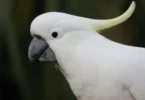

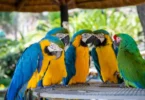

Leave a Comment
You must be logged in to post a comment.